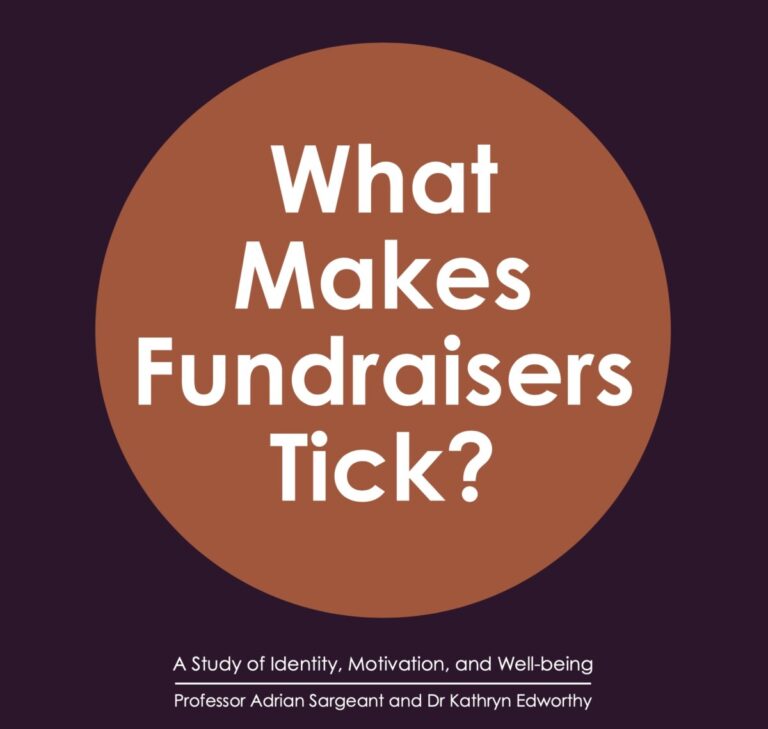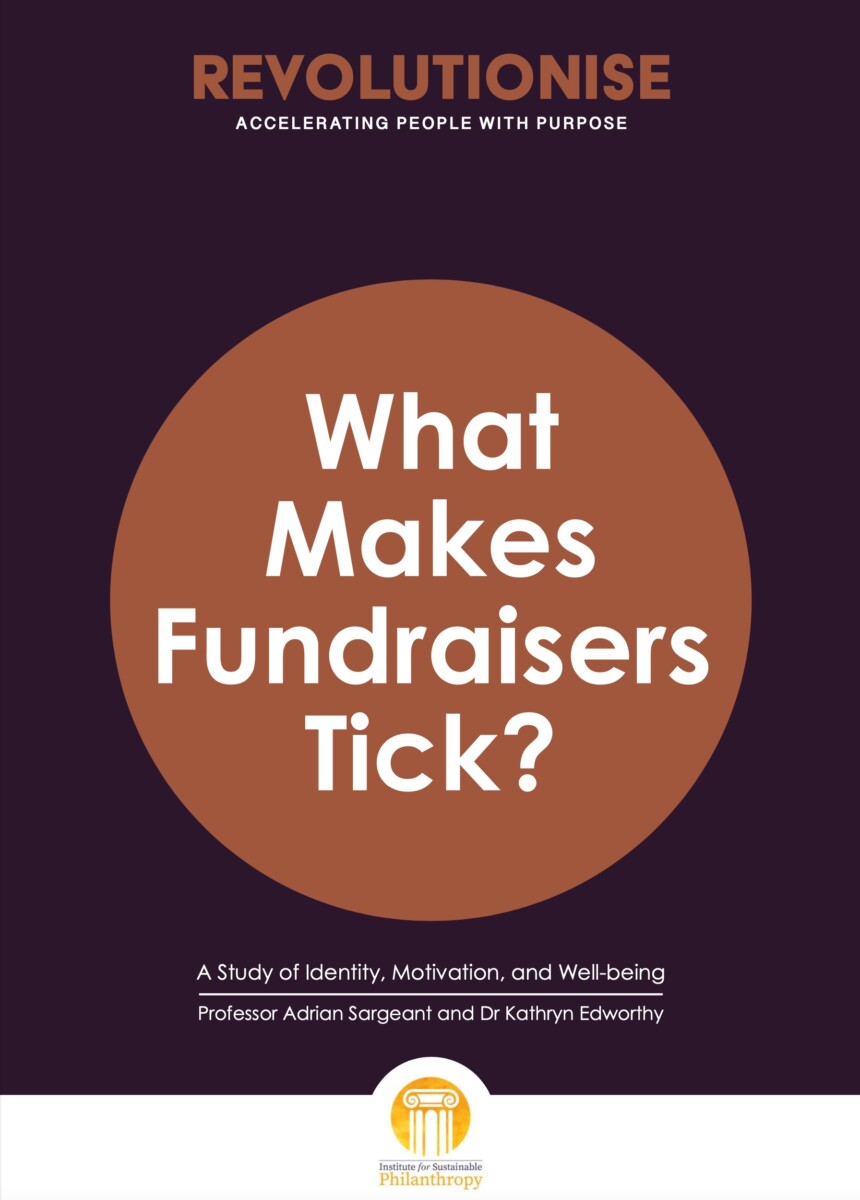Research reveals what makes fundraisers tick

What makes fundraisers tick? New research from Revolutionise International reveals the role of purpose in accelerating fundraising to achieve growth.
Over 2,700 fundraising professionals have revealed what makes them tick in a research project which was carried out on behalf of Revolutionise International by Professor Adrian Sargeant and Dr Kathryn Edworthy at the Institute for Sustainable Philanthropy.
Announced in May this year, the research examined current issues facing the sector, in particular the recruitment and retention of fundraising staff. It highlights the fact that a fully staffed, energised fundraising team is essential to financial success and growth with purpose.
As such the report – What makes fundraisers tick? A Study of Identity, Motivation, and Well-being – is designed to provide valuable and current data that charity leaders can consider and act on.
Advertisement

Set against the burnout and pressures experienced by fundraisers for the past two and a half years due to COVID, the cost of living crisis and the impact of the Ukraine war, the reasons for low morale are examined in detail.
Great Fundraising Report
The research has been produced by the same partnership which produced the Great Fundraising Report in 2014. This study identified why some organisations grow their fundraising while others do not.
It also found that fundraisers are motivated, inspired or ‘charged’ by needs which are subtly different from their colleagues in services and programmes. This hypothesis was tested in this new research.
Three elements that drive fundraisers
Three key elements emerge from the latest research as to what motivates and retains fundraisers.
- Fundraisers need to be closely connected to the cause. The main reason they choose careers in professional fundraising is belief in the mission and the organisation. This feeling supersedes everything else. If fundraisers feel disconnected from this by colleagues or by structures and budgets they will seek employment somewhere where they feel the connection more strongly.
- Professional respect for fundraisers is crucial. In organisations where fundraising is viewed as being the ‘poor relation’ to other departments, fundraisers lose their sense of professional identity and feel further disconnect from the cause. This leads to a feeling of being ‘second class citizens’ and morale plummets.
- Professional fundraisers need to feel they are achieving as well as contributing. Fundraisers need not only to achieve, but to be able to measure their achievements regularly. This explains perhaps why fundraising is their preferred career in pursuit of mission goals and certainly explains the cultural differences between fundraising departments and other functions.
Alan Clayton, MD of Revolutionise International, said:
“This research offers a crucial insight into what makes fundraisers tick now. Like the Great Fundraising Report it is based on academic analysis, and from an larger group of respondents than we expected.
“It confirmed our hypothesis that fundraisers are motivated by needs which are different from their colleagues in programme and service provision.
“Armed with the report’s findings, charity leaders can better understand fundraisers and help support them in meaningful ways, and help grow and sustain their organisation in challenging times”.
Professor Sargeant said:
“Many organisations are beginning to understand how important it is to understand donors and their needs. By contrast, very few have applied the same thinking to how they look after their fundraisers. Given the high level of turnover in our sector and the steep costs of securing new hires, nonprofits need to ensure that they focus on both donor and fundraiser wellbeing in equal measure.”
Revolutionise Annual Lecture
The report is available for download from Revolutionise International at no charge.
Its findings will be presented by Professor Sargeant and Alan Clayton at the Revolutionise Annual Lecture in London’s Glaziers Hall on 30 November. Booking is open for the event.
Clayton added that the research report will tell fundraising leaders what they need to do to have the highest performing fundraising team, and tell fundraisers what they need to do if they want to be a part of the highest performing fundraising team.
The Annual Lecture will present case studies and insight into how to do it.
The report’s methodology
According to Professor Sargeant “the full report reviews the existing research on the motivation of professional employees and parses how fundraisers might be different from the other professional groups that typically comprise nonprofits. It then introduces the results of our own primary study of
fundraiser motivation conducted in May/June 2022.”
Issues addressed in the research included:
- Why fundraisers joined the profession and their current/most recent employers.
- Who they are as a person (their self identity) and who they are as a fundraiser for the focal organisation (professional identity).
- The extent to which their well-being needs are currently being met.
- The activities that ‘charge’ that well-being and, conversely, the activities and/or conflicts that drain it.
- The role of leadership in fundraiser retention.



